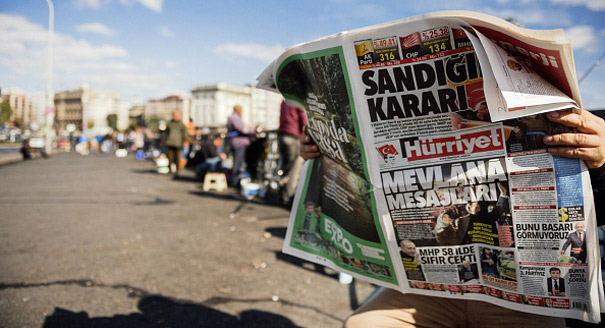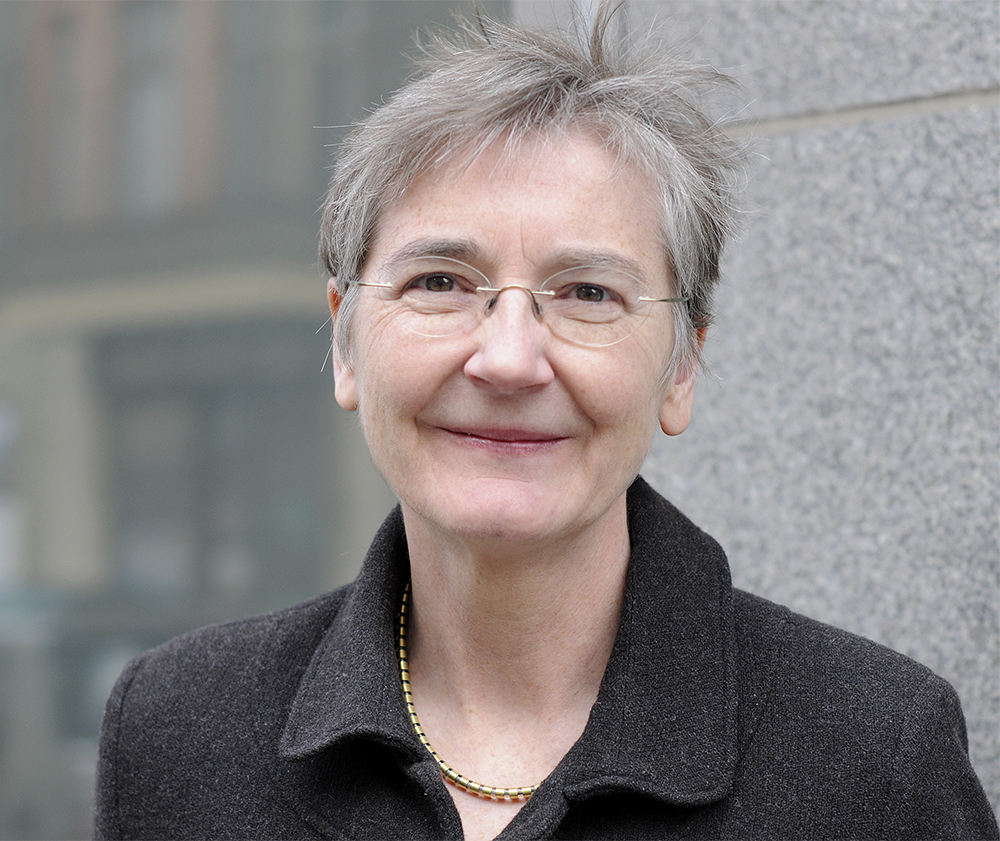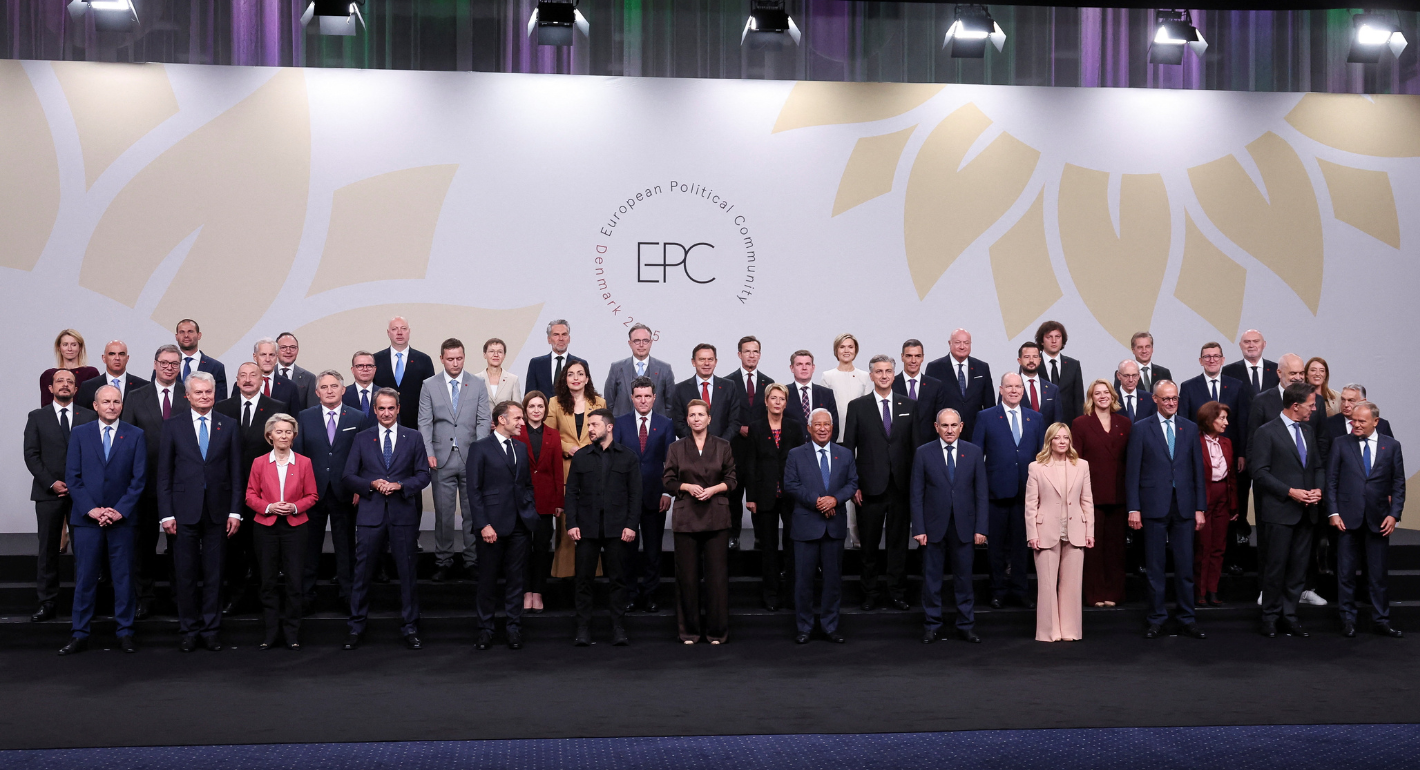Judy Dempsey
{
"authors": [
"Judy Dempsey"
],
"type": "commentary",
"blog": "Strategic Europe",
"centerAffiliationAll": "",
"centers": [
"Carnegie Endowment for International Peace",
"Carnegie Europe"
],
"collections": [
"Turkey’s Transformation"
],
"englishNewsletterAll": "",
"nonEnglishNewsletterAll": "",
"primaryCenter": "Carnegie Europe",
"programAffiliation": "",
"programs": [],
"projects": [],
"regions": [
"Middle East",
"Europe",
"Türkiye"
],
"topics": [
"Democracy",
"EU"
]
}
Source: Getty
Judy Asks: Can Democracy Be Rescued in Turkey?
Every week, a selection of leading experts answer a new question from Judy Dempsey on the foreign and security policy challenges shaping Europe’s role in the world.
Every week, a selection of leading experts answer a new question from Judy Dempsey on the foreign and security policy challenges shaping Europe’s role in the world.
Zeynep AlemdarEASI-Hurford Next Generation Fellow at the Carnegie Endowment for International Peace and professor of political science and international relations at Okan University in Istanbul
Sure, but it would take self-reflective politicians and caring international friends, so it is very unlikely. Politicians’ priorities are to keep their seats, increase their gains, and be elected in the next election, not to promote values. Democracy is more likely to consolidate in countries whose friends and neighbors are democratic and value democratic norms.
The ruling party in #Turkey had only reelection in mind.Tweet This
The violence and polarization fueled by Turkish political leaders, which also helped conceal the dismal economic situation during the five months between this year’s two general elections, has shown that the ruling party had only reelection in mind. The Justice and Development Party (AKP) put on the back burner both the peace process with Turkey’s Kurds and the democratic values that were once the party’s selling points.
Furthermore, the EU’s decision to delay its annual Turkey progress report—which surveys the country’s democratic process and strengthens the hand of the Turkish opposition in critiquing the lack of rule of law—while seeking a money-for-refugees deal proved Europe’s hypocrisy in postponing Turkey’s EU membership under the guise of a lack of democracy.
Close to 90 percent turnout in the November 1 vote and the incredible amount of volunteer work in the Vote and Beyond election monitoring movement showed that Turkish citizens value democratic processes. Yet the overwhelming polarization in the country requires a reappraisal of democratic values.
Bayram BalciResearch engineer at the Sciences Po Center for International Studies
Turkey’s November 1 snap election, and the clear victory it gave to the ruling Justice and Development Party (AKP), has many implications for the country’s democracy and rule of law. Since the Gezi Park protests that erupted in May 2013, various sectors of Turkish society have militated for a new democracy in Turkey—one that respects the rights and liberties of all groups in the country’s diverse society.
Turks have opted for an imperfect and majoritarian democracy.Tweet This
The former prime minister and now president, Recep Tayyip Erdoğan, had responded to his opponents by insisting on the primacy of majoritarian democracy. In August 2014 he won Turkey’s presidential election, and in June 2015 his authoritarian style did not prevent his AKP from winning 40 percent of the vote in the year’s first parliamentary election. On November 1, with an incontestable victory for the AKP and its leaders, the message was clear: Turks have opted for an imperfect and majoritarian democracy, which they viewed as the best way to preserve stability and security.
Does this mean that the door is open for Erdoğan to introduce a strong presidential system that will give him more power? It is not easy to predict what will happen in Turkey. Whatever transpires, Turkish voters have been very wise. In June, they sent Erdoğan a message that they didn’t appreciate his omnipresent, omnipotent style of government. Between June and November, he took the message and retreated a little. This retreat helped the AKP improve its score—a reality that Erdoğan will take into consideration in the future.
Rana Birden ÇorbacıoğluCivil society activist
The astonishing result of the November 1 parliamentary election in Turkey shows that President Recep Tayyip Erdoğan’s “me or chaos” discourse has worked perfectly as a part of his domestic polarization strategy.
#Erdogan's "me or chaos" discourse has worked perfectly.Tweet This
With a majority of seats in the Turkish parliament, the new Justice and Development Party (AKP) government will decide whether to recalibrate its position to enable a more democratic environment and rule of law in line with EU standards or to further consolidate a so-called new Turkish dream that aims to redesign and rebuild Turkey almost one hundred years after the country’s modern founding.
The second option is more likely to be pursued, as voters in the election expressed no immediate need to reach universal democratic standards. However, after the epic failure of the opposition parties to defeat the AKP, strengthening civil society in Turkey remains the only way to rescue the sinking democracy ship. Thus, the EU has to deepen its role in addressing challenges with regard to rights and freedoms in Turkey by supporting civil society and democratization.
Kristian BrakelDirector of the Heinrich Böll Foundation in Istanbul
Democracy in Turkey is a strange animal. On the one hand, the country has had no lack of democratic and relatively free elections in recent years. On the other hand, what happens before and after these elections only partly resembles a democracy.
Democracy in #Turkey is a strange animal.Tweet This
Supporters of the Justice and Development Party (AKP) and Turkish President Recep Tayyip Erdoğan argue that because a majority of Turkish voters continue to cast their ballots for the AKP, the party is the best guardian of democracy. However, by sending a signal to voters that if they stray from that path—as happened in the June 2015 election—the government will actively destabilize the country and the economy, the AKP sets a dangerous precedent.
The three biggest problems that Turkish democracy faces are an aggressive nationalism among all parties, a political culture that understands the citizen as a servant of the state (not the other way around), and an extreme polarization of politics. To overcome these issues, the AKP would have to use its broad mandate to heal political divides, reform the country’s bureaucracy, continue the peace process with Turkey’s Kurds, rein in its own rhetoric, and disentangle itself from the state and the patronage network it has built. Most of this seems highly unlikely, as it would weaken the AKP’s power.
The EU should at least try to offer Turkey support in this regard. Opening the EU accession negotiations chapter on justice reform and using the refugee issue to renew dialogue with Turkey at eye level—based on a real partnership, not just the transfer of funds—would be positive first steps.
Aykan ErdemirNonresident senior fellow at the Foundation for Defense of Democracies
Turkey’s June 2015 parliamentary election provided the country with a precious opportunity to escape from the competitive authoritarianism trap of the Islamist-rooted Justice and Development Party (AKP). However, the country’s opposition seems to have squandered the five-month period in the run-up to the snap election held on November 1. Now that the AKP has managed to regain a single-party majority and a four-year mandate, Turkey’s increasingly autocratic leader, President Recep Tayyip Erdoğan, will not miss the opportunity to crush the remaining opposition and further institutionalize a competitive authoritarian regime in the country.
Turkish citizens have proved their defiance of #Erdogan's rule.Tweet This
The AKP has systematically cracked down on opposition groups, taken over or silenced critical media, and intimidated journalists and opinion leaders—and has thus benefited from an illiberal and unfair campaign environment. There are clear signs that Erdoğan’s heavy-handed tactics will intensify in the months to come. Turkey’s opposition parties will have to overcome an even greater incumbency advantage on the part of the AKP in the next parliamentary election, scheduled to be held in November 2019.
Against all the odds, Turkish citizens have proved their defiance of and resilience against Erdoğan’s brutal autocratic rule. If Turkey’s democrats are to stand any chance of success, they will need the genuine solidarity of European politicians who have so far chosen to let Turkey down by appeasing Erdoğan.
Hugh PopeDirector of communications and outreach at the International Crisis Group
The Turks’ clear vote for the ruler they know in the November 1 parliamentary election reflects a yearning for stability. After the ruling party lost its majority in the June 7 election, the country was shaken in July and October by bombings in Suruç and Ankara that killed more than 130 people at pro-Kurdish demonstrations, apparently the work of the self-proclaimed Islamic State. At the same time, International Crisis Group’s open-source casualty toll counted 361 people killed between July 20 and October 12 in a flare-up of fighting between the Turkish security forces and the Kurdistan Workers’ Party (PKK).
Even though peace talks are not currently high on the public agenda, the Turkish government and the Kurdish nationalist movement both know that this is an unsustainably high rate of attrition, and that they must return to the off-on attempts since 2005 to solve two of Turkey’s major interwoven priorities: full rights for its 15 percent of Kurdish-speaking communities, and an end to the PKK’s thirty-one-year-old insurgency.
There is a new climate of repression of dissent in #Turkey.Tweet This
Finding compromise will be tougher than ever, at least in the short term. Islamist-Kurdish rivalries from the Syrian civil war have now spilled over into Turkey; the PKK has shown its violent side again; and there is a new climate of repression of dissent and social polarization in Turkey, for which President Recep Tayyip Erdogan’s ruling Justice and Development Party (AKP) shares much responsibility.
But both sides can take advantage of the relatively strong presence of the pro-Kurdish Peoples’ Democratic Party (HDP) in the new Turkish parliament to get back to work on a political settlement. Bitter experience has taught both sides that no military victory is possible in their conflict; they should now realize that the main beneficiary of continued fighting will be the Islamic State.
Gönül TolFounding director of the Center for Turkish Studies at the Middle East Institute
Turkish democracy has to undo years of damage brought on by the ruling Justice and Development Party (AKP) to put itself back on track.
In recent years, the AKP has instituted policies that undermined central pillars of democracy, including the separation of powers, checks and balances, government accountability to voters, and the freedom of speech. That the Turkish government resumed a crackdown on journalists and political rivals of President Recep Tayyip Erdoğan just two days after the November 1 election signals that these worrisome trends will continue. In the absence of these democratic institutions and an effective opposition, Turkish democracy is at the mercy of the ruling party.
Turkish #democracy desperately needs a push from the EU.Tweet This
Turkish democracy desperately needs a push from the EU. The union can play a constructive role in Turkey’s democratic consolidation, as it has in the past. Specifically, this means keeping the country’s EU membership prospects fresh and maintaining the focus of the accession negotiations on the rule of law, the freedom of expression, minority rights, and judicial independence.
Holding back a critical European Commission progress report on Turkey until after the election, however, points to the EU’s willingness to turn a blind eye to the AKP’s authoritarian tendencies in return for its cooperation on Syrian refugees. Soft-pedaling Turkey’s poor record on democracy in exchange for assistance on the refugees risks emboldening an authoritarian AKP and contributing to greater instability in Turkey.
About the Author

Nonresident Senior Fellow, Carnegie Europe
Dempsey is a nonresident senior fellow at Carnegie Europe
- Europe Needs to Hear What America is SayingCommentary
- Babiš’s Victory in Czechia Is Not a Turning Point for European PopulistsCommentary
Judy Dempsey
Recent Work
Carnegie does not take institutional positions on public policy issues; the views represented herein are those of the author(s) and do not necessarily reflect the views of Carnegie, its staff, or its trustees.
More Work from Strategic Europe
- Global Instability Makes Europe More Attractive, Not LessCommentary
Europe isn’t as weak in the new geopolitics of power as many would believe. But to leverage its assets and claim a sphere of influence, Brussels must stop undercutting itself.
Dimitar Bechev
- Europe on Iran: Gone with the WindCommentary
Europe’s reaction to the war in Iran has been disunited and meek, a far cry from its previously leading role in diplomacy with Tehran. To avoid being condemned to the sidelines while escalation continues, Brussels needs to stand up for international law.
Pierre Vimont
- Taking the Pulse: Can European Defense Survive the Death of FCAS?Commentary
France and Germany’s failure to agree on the Future Combat Air System (FCAS) raises questions about European defense. Amid industrial rivalries and competing strategic cultures, what does the future of European military industrial projects look like?
Rym Momtaz, ed.
- Macron Makes France a Great Middle PowerCommentary
France has stopped clinging to notions of being a great power and is embracing the middle power moment. But Emmanuel Macron has his work cut out if he is to secure his country’s global standing before his term in office ends.
Rym Momtaz
- How Europe Can Survive the AI Labor TransitionCommentary
Integrating AI into the workplace will increase job insecurity, fundamentally reshaping labor markets. To anticipate and manage this transition, the EU must build public trust, provide training infrastructures, and establish social protections.
Amanda Coakley









